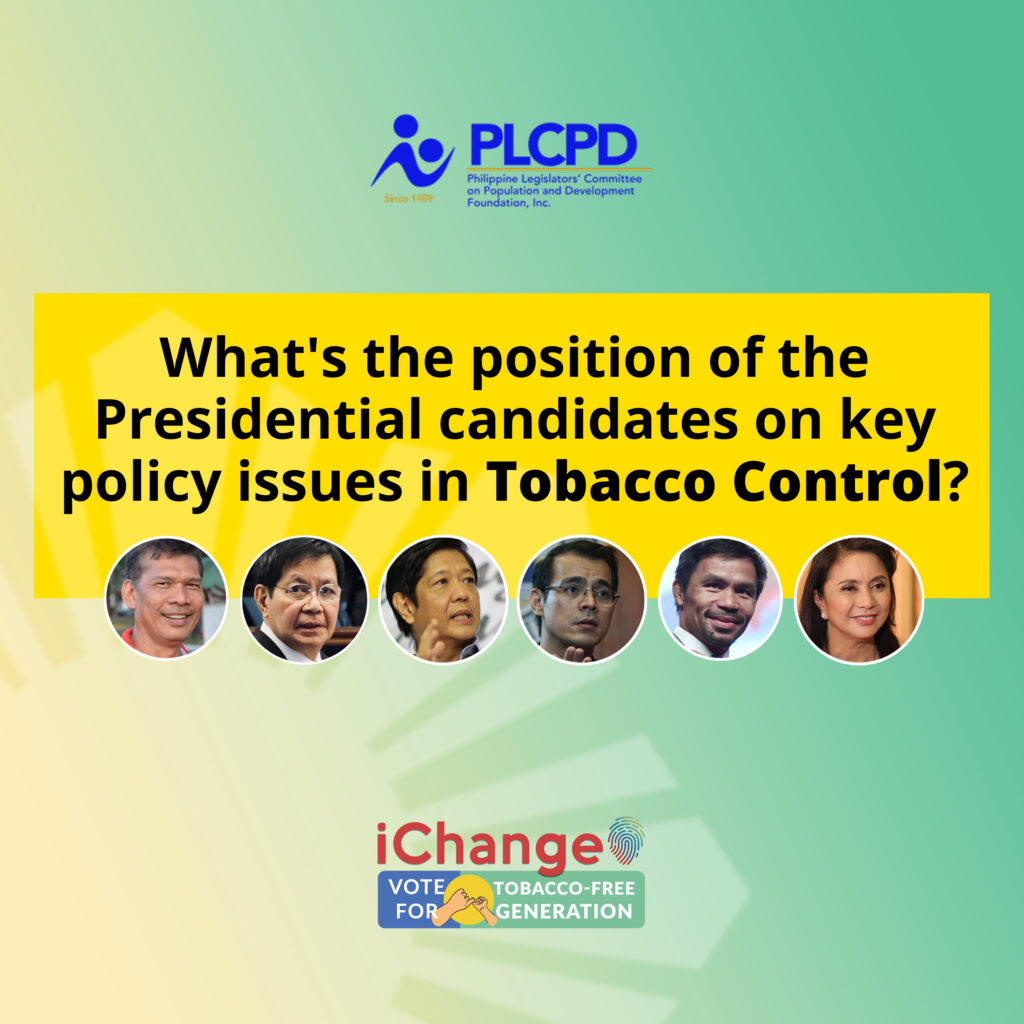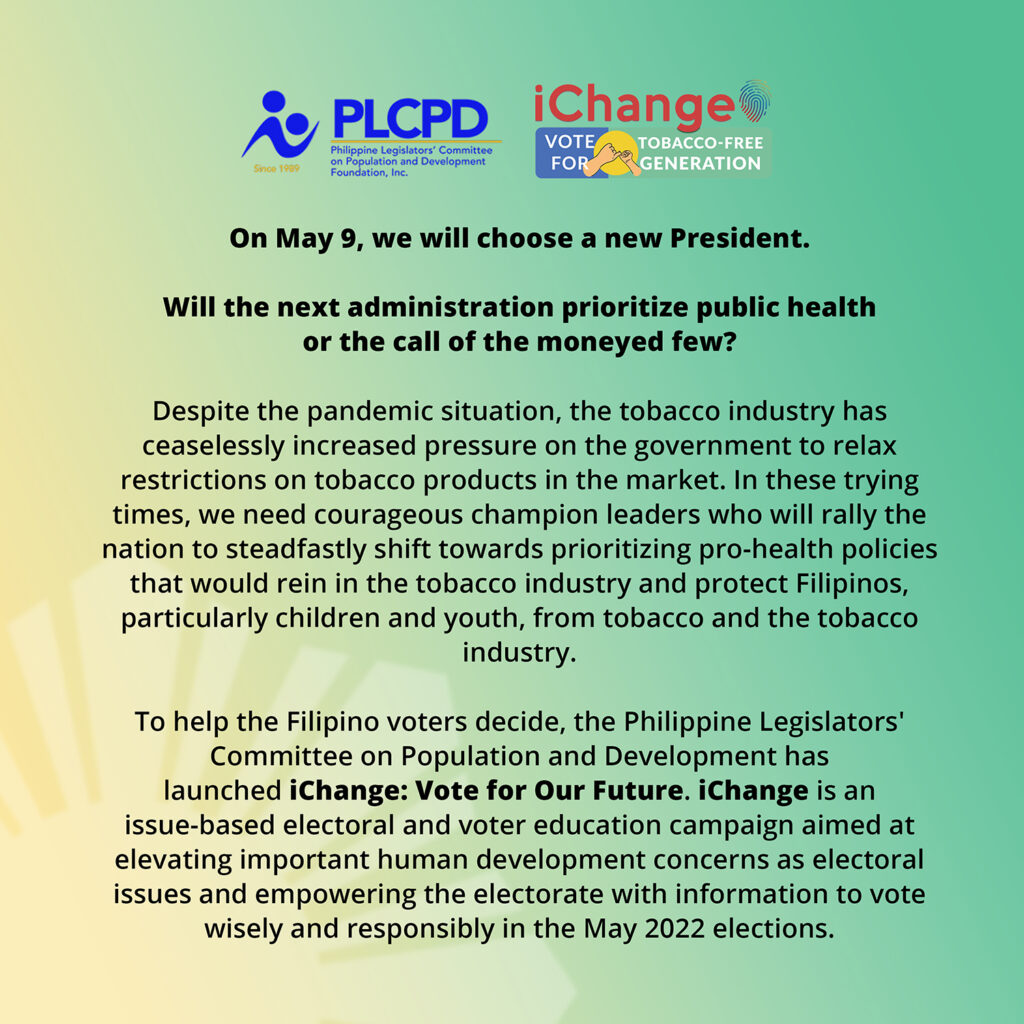Presidential candidates on key policy issues in tobacco control
We looked at the position and track record of presidential candidates on the following policy issues in tobacco control:
Sin Tax Reform Laws. A series of increases in taxes on tobacco products and alcoholic beverages to curb consumption and ultimately reduce illnesses caused by alcohol and tobacco use. These include Republic Acts (RAs) 10351, 11346, and 11467. Revenues from the sin taxes are used to fund the implementation of Universal Health Care Law and other programs such as assistance to tobacco producing regions.
Graphic Health Warnings Law. The Law requires all tobacco products manufactured or imported for sale in the Philippines to carry graphic health warnings, covering 50% of any tobacco package and containing a picture warning and an accompanying textual warning that is related to the picture.
Smoke-free Environments. Policies that protect people from the harms of exposure to secondhand smoke by prohibiting smoking in public places and enclosed spaces as provided for by the Tobacco Regulation Act (RA 9211) and expanded by Executive Order 26 issued by President Duterte. Currently, there are moves to expand the definition of places where smoking can be prohibited under the law, and to prohibit the creation of designated smoking areas indoors.
Pro-industry Vape Bill. Regulation of the importation, manufacture, sale, packaging, distribution, use, and communication of electronic nicotine and non-nicotine delivery systems (ENDS) and heated tobacco products (HTPs). According to the Word Health Organization, ENDS, also known as electronic cigarettes or vapes, are addictive and not harmless, and should be strictly regulated. Use of these products by adolescents can lead to nicotine addiction. In the Philippines, there is an existing regulatory framework for ENDS and HTPs that bans flavors, restricts sale and use to those below 21 years old and non-smokers, and assigns FDA as the lead regulatory agency. However, the recently passed Vape bill by Congress reverses these existing measures by allowing flavors, lowering the age restriction to 18, and transferring the regulation to DTI. The bill is being criticized by health advocates and advocates of children’s rights as anti-health, and anti- youth. The bill has been ratified by both houses of Congress to date.






